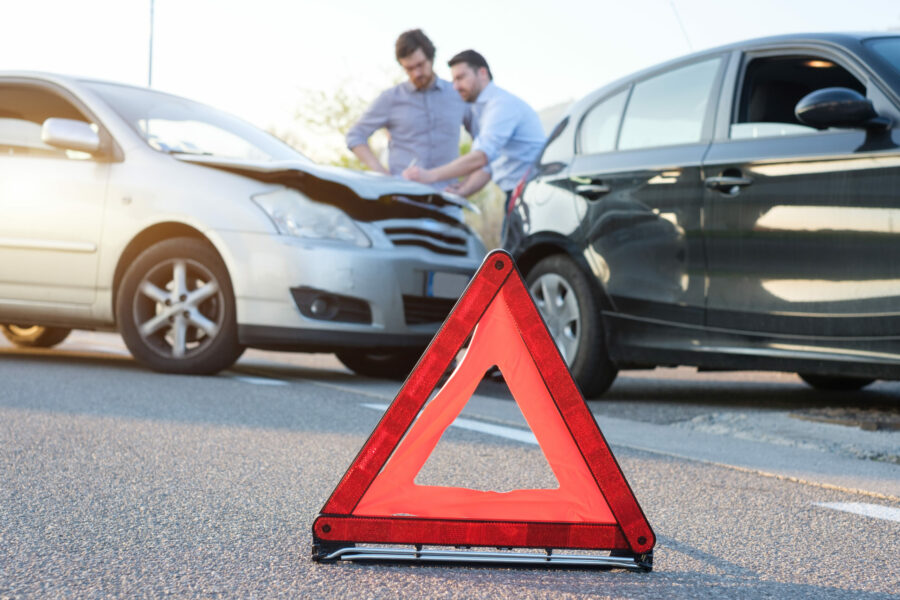Nobody plans car accidents, but they can happen at some point. In the event of a car accident, it’s important to protect yourself from legal trouble.
A competent legal representative is crucial to your case following a car accident. This article will look at defenses you can use to avoid legal trouble after a car accident. You need to know what to do apart from getting answers to the question: can someone sue you for a car accident in Florida. You can save money on legal fees and premiums by following these guidelines.
Hence, here are ways to defend yourself in such an event.
Understand Burden Of Proof And Liability
Be mindful of the fact that the plaintiff has the burden of proof in a civil tort action. They must prove that you were negligent in the case at hand.
As with any tort claim, a car accident necessitates establishing four points:
- that you had a duty of care to the plaintiff
- that you breached the duty of care
- that the plaintiff was hurt as a proximate result of the violation
- that the plaintiff suffered bodily harm
That’s right; there are four ways to tactically counter the claim made by the plaintiff. If all four can be proven against you, you could be liable. On the side of the plaintiff, the burden of proof is theirs to show that all four points are present.
In this case, the plaintiff will employ the services of a dedicated car accident lawyer to establish your liability and help them meet their burden of proof. They’ll examine the specifics of the plaintiff’s case, prepare the necessary paperwork, negotiate with the insurance company, and represent them in court if the lawsuit proceeds to trial. All these things boil down to one purpose – to recover the proper compensation for the plaintiff’s injuries.
For this reason, having a legal representative by your side is also essential to help you defend yourself against a car accident lawsuit. Remember that being named as a defendant in the said case doesn’t mean you can’t refute the allegations raised by the plaintiff. With the help of your lawyer, you can have better chances of obtaining a favorable outcome for your case.

Know The Possible Defenses
During a trial, establishing culpability is essential as it can significantly impact the outcome. However, proving fault isn’t the only thing that matters when filing a claim; other elements like statutes of limitation, carelessness, the duty of care, causation, and so on can also play a role. Here are some common defenses:
-
Statute Of Limitations
When a person is under suspicion for a crime, they have the same opportunity to mount a defense before a court of law that a person who brings a valid claim for damages has. Defendants in a car accident claim frequently raise the statute of limitations (a law limiting the time window for commencing legal actions) as a legal defense. For instance, the statute of limitations for filing a lawsuit in Florida is four years.
In spite of being a valid defense in car accident lawsuits, the statute of limitations can be extended in some situations. Examples include the following:
- When the plaintiff is disabled
- When the accused is located in a foreign country
- Where the plaintiff is a minor
Generally, however, the four-year period is absolute.
-
Comparative and Contributory Negligence
Contributory and comparative negligence doctrines are the most frequently raised defenses to compensation claims arising from automobile accidents. The defendant will try to shift some of the blame to the plaintiff. All, or nearly all of the harm, is attributed to the plaintiff here. In the event of an incident, establishing fault might be challenging. First, in a lawsuit or insurance claim, the person who was hurt has to prove that the person who hurt them was careless. However, even if the plaintiff is successful in doing so, the defendant may still be able to present a defense to the accident and avoid liability. When both parties are at fault for an accident, or ‘negligent,’ in legal terms, the systems of comparative and contributory negligence are put into place to determine who should pay the damages.
Under the doctrine of comparative negligence, the plaintiff’s damages will be reduced depending on the fault percentage assigned. For instance, if the plaintiff is said to be 30% at fault for what happened, their potential damages will be lowered by 30%.
On the other hand, the doctrine of contributory negligence provides that the plaintiff may be prohibited from recovering damages if they’re found to be partially at fault for the car accident. However, check whether your state applies the contributory negligence principle to car accident cases to get the most out of this defense.
-
Assumption Of Risk
In other situations, the defendants try to show that the person who got hurt knew or should have known there was a chance of getting hurt when they did what hurt them. As a result, the plaintiff can be barred from receiving compensation. can someone sue you for a car accident in florida
To Summarize
Personal injury cases and trials require thorough preparation on both the part of the plaintiff and the defendant. Even if your case is well-founded with the facts and evidence presented, you still need to be well-prepared for trial to avoid losing. Hence, you should seek the counsel of experienced auto accident attorneys.
Personal injury law is complicated, but you’ll do better in court if you know the basics. This includes understanding the most frequent defenses like the statute of limitations, comparative or contributory negligence, and assumption of risk. You should also know how trials are conducted. Reading about personal injury law will never be enough to grasp it fully. But it’s strongly suggested that working with experienced car accident lawyers would help. On your part, though, it pays to understand how to defend yourself in a car accident lawsuit.

Leave a Reply